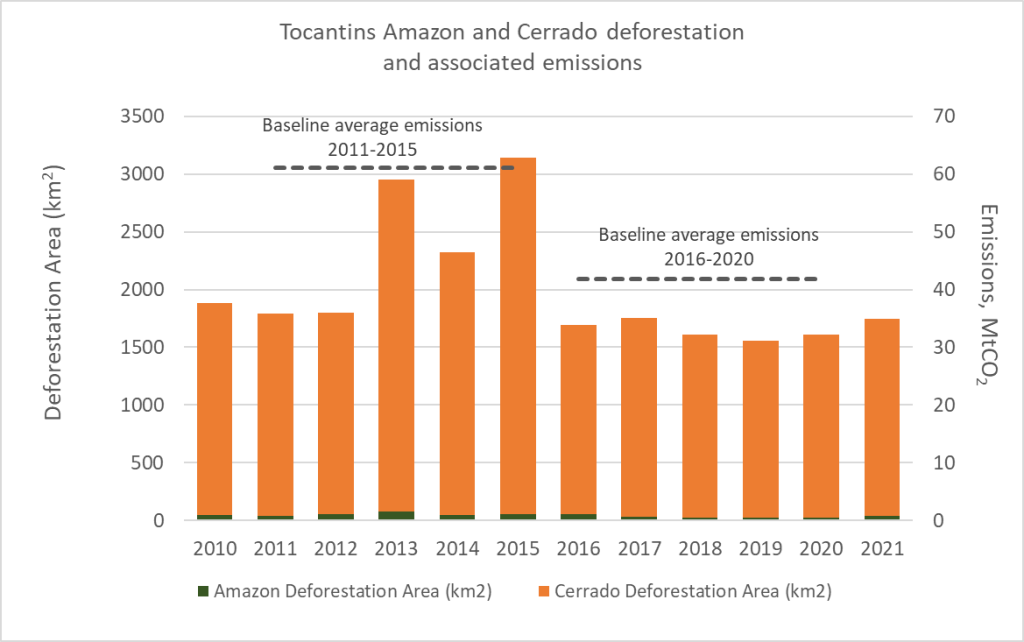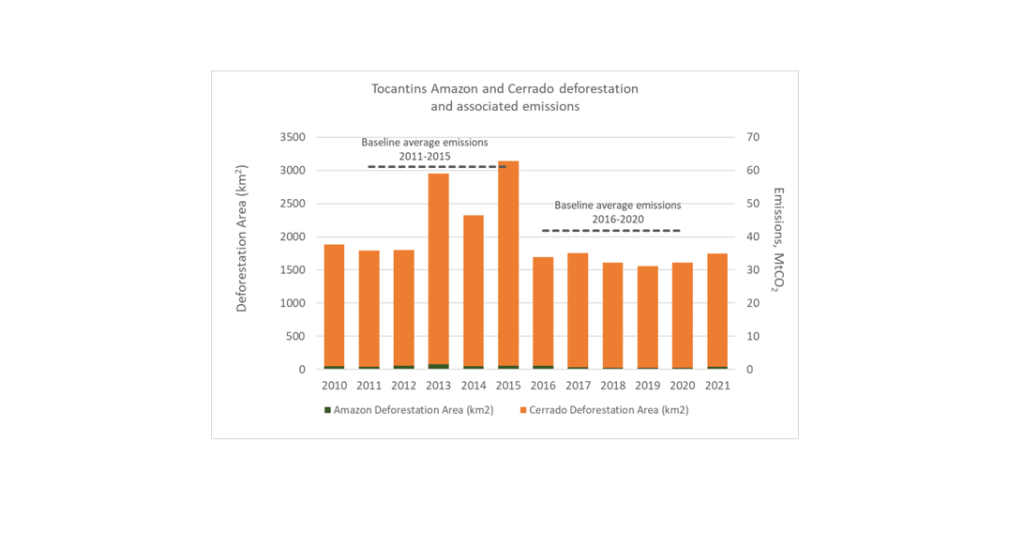This impact story was originally published by the Earth Innovation Institute here.
Major breakthrough for the Amazon forest, the Cerrado savanna and the people of Tocantins
Geneva: On June 5, 2023, the state government of Tocantins, Brazil, signed a ten-year forest carbon credit purchase agreement with Mercuria Energy Trading. The contract could deliver hundreds of millions of dollars to implement the state’s pioneering “jurisdictional REDD+” program. It is the second forest carbon purchase agreement of its kind, and the first established between a company and a subnational government. The Earth Innovation Institute was the main technical partner supporting Tocantins throughout the long journey to reach this agreement.
Tocantins is a UK-sized state that straddles the Amazon forest, the Cerrado savanna, and the Ilha Bananal, which is the world’s second-largest fluvial island and a wetland complex the size of Florida’s Everglades. From 2016 through 2020, Tocantins reduced emissions from deforestation 32%.

The deal will allow Tocantins to sell credits to Mercuria once they have been verified against the rigorous requirements of “The REDD+ Environmental Excellence Standard” (TREES) of the “Architecture for REDD+ Transactions” (ART) framework. These requirements are based upon REDD+ rules developed under the auspices of the United Nations since 2007. Emissions reductions only qualify under TREES if there is full participation of Indigenous Peoples and other Local Communities (IPLC), the emissions reductions are real, additional and well-documented, and if there is a benefit-sharing agreement that is fair and transparent. Tocantins is committed to developing programs to meet all these requirements in a participatory manner in 2023.
Marcello Leles, Tocantin’s Secretary of Environment and Water Resources (SEMARH), which leads the program, explained:
The Agreement signed today, June 5th, World Environment Day, by Governor Wanderlei Barbosa and Mercuria, in my view embodies the most important moment in Tocantins’ environmental policy since the creation of the state… Much more than a trade agreement, what we did today will positively impact all our work in favor of preserving our environment and improving the quality of life of native, traditional, indigenous peoples and small producers.
Tocantins has also committed to full participation of IPLC in its REDD+ program as a signatory to guiding principles developed by indigenous leaders from around the world together with dozens of subnational governments that are members of the Governors’ Climate and Forests Task Force. Eighteen indigenous peoples’ organizations are signatories to the principles.
The sale of high-integrity credits from jurisdictional REDD+ programs could increase funding for Amazon forest and Cerrado savanna conservation more than ten-fold, making feasible a regional shift to forest- and climate-positive, socially-inclusive development in the region that greatly reduces the likelihood of an Amazon forest dieback driven by a weakening of the rainfall system. Rainfall in the Amazon depends on the forest itself.
“The Amazon region will need an injection of significant new, agile funding to make the pivot to a regenerative phase of its development that averts a regional forest dieback and incentivizes sustainable agriculture. The high-integrity credits from Jurisdictional REDD+ programs are the most promising option for delivering the funding that is needed”, says Daniel Nepstad, Executive Director of Earth Innovation Institute.
